Filter News
Area of Research
- (-) Materials (68)
- (-) Neutron Science (12)
- (-) Supercomputing (20)
- Advanced Manufacturing (2)
- Biological Systems (2)
- Biology and Environment (18)
- Building Technologies (1)
- Clean Energy (46)
- Computational Engineering (1)
- Computer Science (2)
- Electricity and Smart Grid (1)
- Energy Sciences (2)
- Functional Materials for Energy (2)
- Fusion and Fission (13)
- Isotopes (5)
- Materials Characterization (2)
- Materials for Computing (4)
- Materials Under Extremes (1)
- National Security (8)
- Nuclear Science and Technology (8)
- Quantum information Science (1)
- Transportation Systems (2)
News Type
News Topics
- 3-D Printing/Advanced Manufacturing (7)
- Advanced Reactors (3)
- Artificial Intelligence (4)
- Big Data (1)
- Bioenergy (4)
- Biology (5)
- Biomedical (1)
- Buildings (1)
- Chemical Sciences (7)
- Climate Change (3)
- Composites (1)
- Computer Science (7)
- Coronavirus (1)
- Critical Materials (1)
- Cybersecurity (3)
- Decarbonization (1)
- Energy Storage (9)
- Environment (5)
- Exascale Computing (3)
- Frontier (3)
- Fusion (3)
- Grid (1)
- High-Performance Computing (8)
- Irradiation (1)
- Isotopes (2)
- ITER (1)
- Machine Learning (2)
- Materials (27)
- Materials Science (15)
- Microscopy (8)
- Molten Salt (1)
- Nanotechnology (11)
- National Security (1)
- Neutron Science (10)
- Nuclear Energy (3)
- Partnerships (2)
- Physics (5)
- Polymers (2)
- Quantum Computing (1)
- Quantum Science (3)
- Security (1)
- Simulation (3)
- Software (1)
- Space Exploration (1)
- Summit (1)
- Sustainable Energy (3)
- Transformational Challenge Reactor (1)
- Transportation (3)
Media Contacts
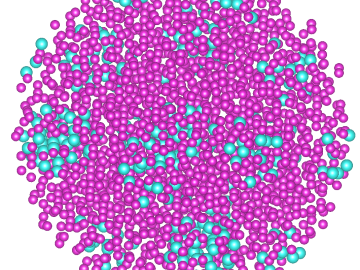
Researchers used the world’s first exascale supercomputer to run one of the largest simulations of an alloy ever and achieve near-quantum accuracy.
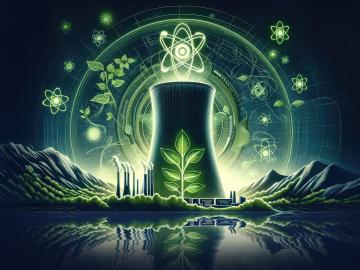
Anne Campbell, a researcher at ORNL, recently won the Young Leaders Professional Development Award from the Minerals, Metals & Materials Society, or TMS, and has been chosen as the first recipient of the Young Leaders International Scholar Program award from TMS and the Korean Institute of Metals and Materials, or KIM.

Hilda Klasky, an R&D staff member in the Scalable Biomedical Modeling group at ORNL, has been selected as a senior member of the Association of Computing Machinery, or ACM.
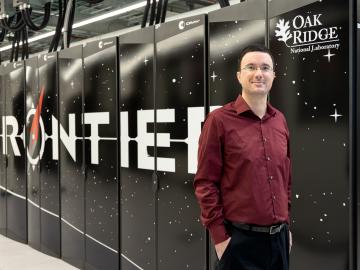
The Exascale Small Modular Reactor effort, or ExaSMR, is a software stack developed over seven years under the Department of Energy’s Exascale Computing Project to produce the highest-resolution simulations of nuclear reactor systems to date. Now, ExaSMR has been nominated for a 2023 Gordon Bell Prize by the Association for Computing Machinery and is one of six finalists for the annual award, which honors outstanding achievements in high-performance computing from a variety of scientific domains.
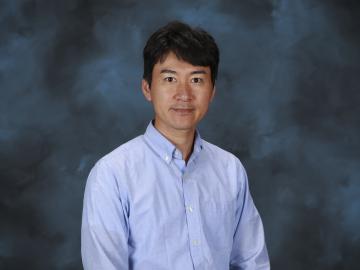
Takaaki Koyanagi, an R&D staff member in the Materials Science and Technology Division of ORNL, has received the TMS Frontiers of Materials award.
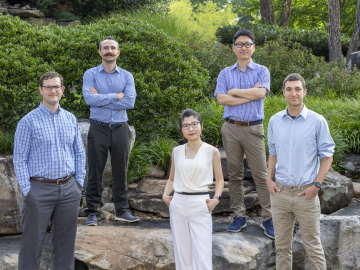
Since its inception in 2010, the program bolsters national scientific discovery by supporting early career researchers in fields pertaining to the Office of Science.
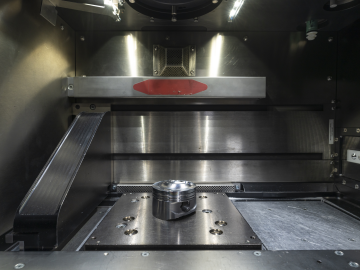
Dean Pierce of ORNL and a research team led by ORNL’s Alex Plotkowski were honored by DOE’s Vehicle Technologies Office for development of novel high-performance alloys that can withstand extreme environments.
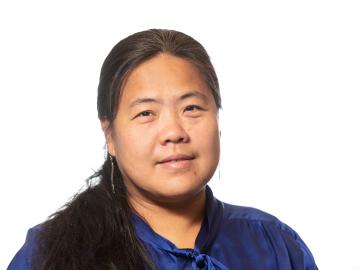
Xiao-Ying Yu, a distinguished scientist at the Department of Energy’s Oak Ridge National Laboratory, has been named a Fellow of AVS: Science and Technology of Materials, Interfaces, and Processing, formerly American Vacuum Society.
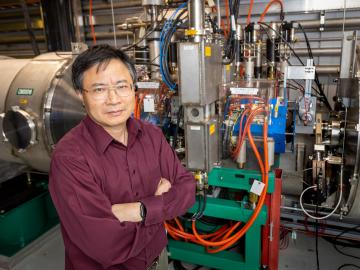
When opportunity meets talent, great things happen. The laser comb developed at ORNL serves as such an example.
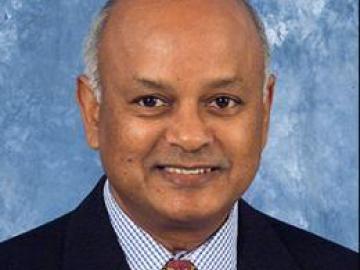
Stan David, retired scientist and Corporate Fellow Emeritus at the Department of Energy’s Oak Ridge National Laboratory, was awarded the Joining and Welding Science Award from the Joining and Welding Research Institute at Osaka University, Japan.




